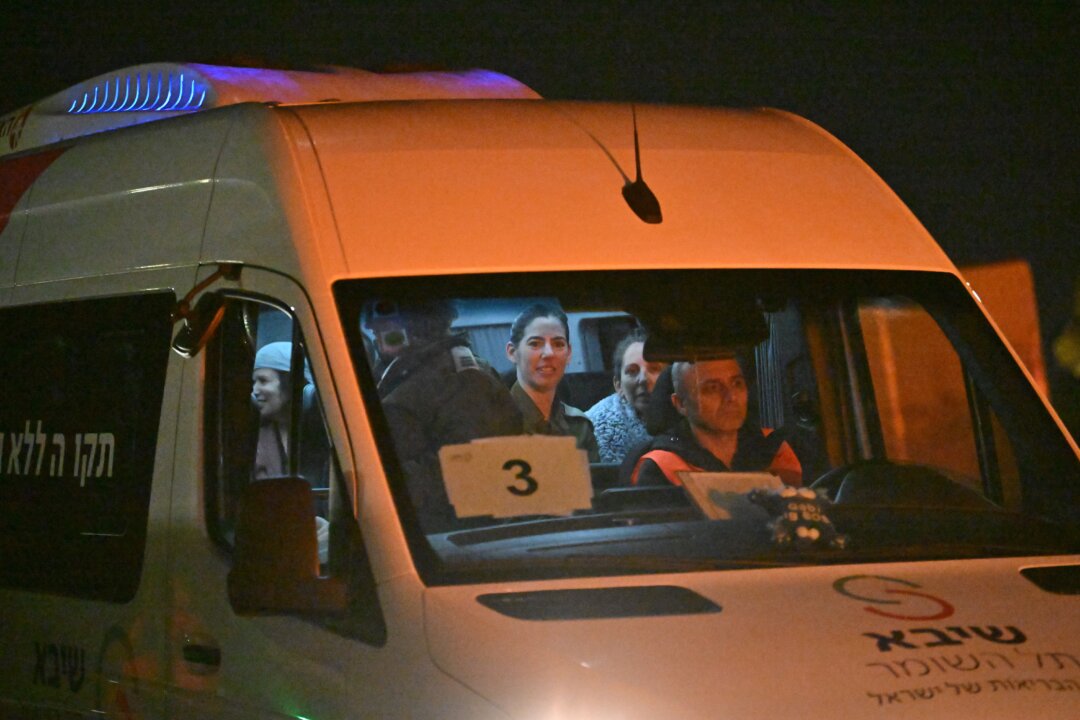Truce in Gaza Endures Another Day and More Hostages Are Freed, but Tougher Talks Ahead
DEIR AL-BALAH, Gaza Strip—Israel and the Hamas terrorist group agreed at the last minute Thursday to extend their cease-fire in Gaza by another day to allow more hostages and prisoners to be released. But any further renewal of the truce, now in its seventh day, could prove more daunting since Hamas is expected to set a higher price for many of the remaining hostages.
Hamas freed two Israeli women Thursday afternoon and more hostage releases were expected to follow, the Israeli military said. At least 10 Israelis a day, along with other nationals, have been released during the truce, in return for Israel’s release of at least 30 Palestinian prisoners.
Israel has vowed to resume the fighting—with the goal of dismantling Hamas—once the cease-fire ends.
The talks appear to be growing tougher, with Hamas having already freed many of the women and children it kidnapped on its brutal attack into Israel on Oct. 7 in which Hamas terrorists killed more than 1,200 Israelis, mostly civilians, and took about 240 hostages back to the enclave.
The militants are expected to make greater demands in return for freeing scores of civilian men and soldiers.
U.S. Secretary of State Antony Blinken, who met with Israeli Prime Minister Benjamin Netanyahu and other top officials on his third visit to the region since the start of the war, said he hoped the cease-fire could be extended and more hostages could be released.
“This process is producing results. It’s important, and we hope that it can continue,” he said.
Qatar and Egypt, which have played a key role in mediating, are seeking to prolong the deal by another two days, according to Diaa Rashwan, the head of Egypt’s State Information Service.
Thursday morning, Hamas terrorists opened fire on people waiting for buses along a main highway entering Jerusalem, killing at least three people and wounding several others, according to Israeli police.
The two gunmen, brothers from a neighborhood in annexed east Jerusalem, were killed. After the attack, six other members of the family were detained, and the government ordered their house be demolished.
The attack did not appear to threaten the truce in Gaza.Increasing Tense Hostage Talks
Mr. Netanyahu is under intense pressure to return the hostages home.Israel says it will maintain the truce until Hamas stops releasing captives, at which point it will resume military operations aimed at eliminating the terrorist group.
The initial truce, which began Friday and has now been extended twice, called for the release of women and children. Israeli officials say Gaza terrorists still hold around 30 women and children, who would all be released within a few days at the current rate. The two women released so far on Thursday—who are 21 and 40 years old—have returned to Israel.
It's not clear how many of the remaining women hostages might be soldiers. For soldiers and the civilian men still in captivity, Hamas is expected to demand the release of high-profile Palestinians convicted of deadly attacks, something Israel has strongly resisted in the past.
Israel says around 125 men are still held hostage, including several dozen soldiers.
The 210 Palestinians released, including at least seven Israeli Palestinians, have been women and teenagers who were detained in Israeli jails.
With Thursday's releases, a total of 75 Israelis, including dual nationals, have been freed during the truce. Another 24 hostages—23 Thais and one Filipino—have also been released, including several men.
Before the cease-fire, Hamas released four hostages, and the Israeli army rescued one. Three others were found dead in Gaza. On Thursday, the military confirmed the death of Ofir Tzarfati, who was believed to be among the hostages, without providing any further details. The 27-year-old attended a music festival where at least 360 people were killed and several others were kidnapped on Oct. 7.
Israel’s bombardment and ground invasion in Gaza have killed more than 13,300 Palestinians, according to the Hamas-controlled Health Ministry in Gaza, which does not differentiate between civilians and combatants.
Israel says 77 of its soldiers have been killed in the ground offensive.
By Wafaa Shurafa, Jack Jeffery, and Melanie Lidman









